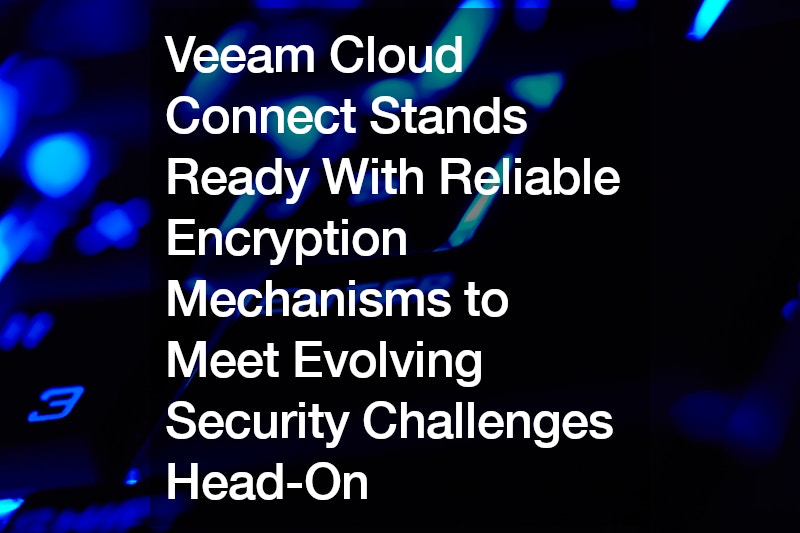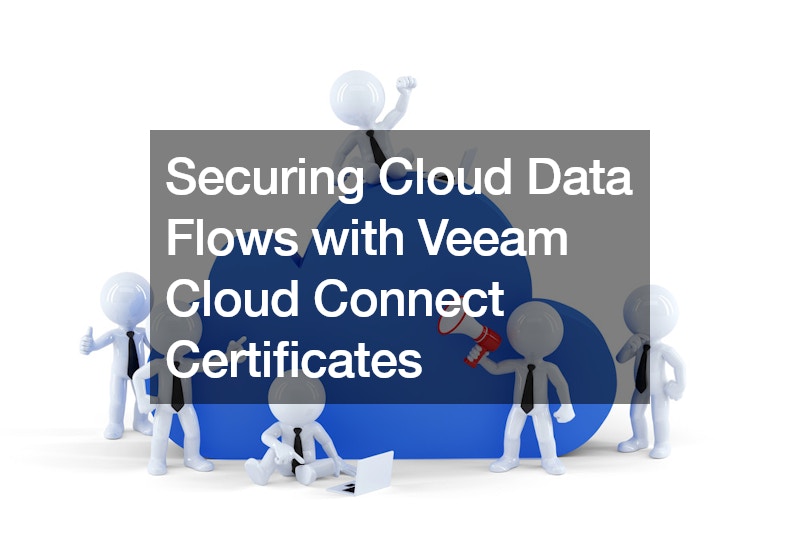
In the modern digital landscape, where data security is crucial, and the adoption of cloud services is pervasive, businesses rely heavily on robust solutions to protect their sensitive information. Veeam’s Cloud Connect emerges as a trusted platform for comprehensive data protection and management, providing crucial features such as robust encryption through certificates to guarantee the confidentiality, integrity, and secure transmission of data flows.
Let’s delve deeper into the pivotal role that Veeam Cloud Connect certificates play in fortifying the security of cloud-based data environments.
The Importance of Encryption in Cloud Environment
The importance of encryption in cloud environments cannot be overstated, as it serves as the fundamental pillar of security. By transforming data into an encrypted format, encryption addresses critical concerns related to data privacy and compliance, ensuring that only authorized parties can access and decipher sensitive information.
Veeam Cloud Connect utilizes certificates strategically for two essential purposes within this framework: first, to encrypt data at rest, thereby safeguarding stored information against unauthorized access, and second, to secure data during transmission over networks, ensuring end-to-end protection from potential threats. This dual approach ensures robust security measures are in place throughout the data lifecycle in cloud-based operations.
AES 256 for Data at Rest
When data resides in backup repositories at service providers, it needs robust protection against unauthorized access. Veeam utilizes AES 256 encryption, a recognized standard for encrypting stored data. This encryption ensures that even if physical access to storage devices is compromised, the data remains unintelligible without the decryption key.
SSL/TLS for Data in Transit
For data moving between a client’s environment and the service provider over public internet connections, Veeam Cloud Connect employs SSL/TLS certificates. These protocols establish secure communication channels by encrypting data packets during transmission. This approach not only prevents interception by malicious actors but also ensures data integrity throughout its journey.
How Certificates Facilitate Secure Communication
The process of establishing secure communication channels in Veeam Cloud Connect involves several key steps:
Authentication and Handshake
The client (tenant) initiates a connection request to the service provider’s backup server via a cloud gateway. Authentication mechanisms verify credentials (e.g., username and password) before proceeding.
TLS Certificate Exchange
Upon successful authentication, the service provider’s backup server presents its TLS certificate. This certificate contains a public key used to initiate an encrypted session.
Certificate Validation
The client verifies the validity of the TLS certificate. This step ensures that the certificate is issued by a trusted authority and hasn’t been tampered with. Validation is crucial for establishing trust between parties involved in data transmission.
Secure Communication Channel Establishment
With the TLS certificate validated, a secure tunnel is established between the client and the service provider. This tunnel encrypts all data transmitted, safeguarding it from unauthorized access or tampering.
Configuring and Managing Certificates in Veeam Cloud Connect
Effective configuration and management of certificates are essential for maintaining the security and integrity of data flows. Veeam Cloud Connect provides straightforward mechanisms to achieve this:
Certificate Generation
Administrators can generate new certificates directly within the Veeam Cloud Connect console. Options include creating self-signed certificates or importing externally generated ones. Self-signed certificates are suitable for internal use but require additional validation steps for external trust.
Installation and Configuration
Once generated, certificates are installed in the appropriate certificate stores on respective servers. For instance, the service provider’s backup server stores its private key securely while distributing the public key to clients.
Cloud Gateway Deployment
Cloud Gateways play a pivotal role in managing secure connections. These components, deployed either as dedicated servers or integrated with existing infrastructure, utilize SSL/TLS certificates to encapsulate and protect data traffic between clients and service providers.
Advantages of Using Veeam Cloud Connect Certificates
End-to-End Security
By employing AES 256 for data at rest and SSL/TLS for data in transit, Veeam Cloud Connect ensures comprehensive data protection from the client’s environment to backup repositories.
Simplicity and Integration
Veeam’s approach to certificate management simplifies deployment and integration, allowing businesses to focus on operational efficiency without compromising security.
Compliance Readiness
The use of industry-standard encryption protocols ensures compliance with data protection regulations and industry best practices, mitigating risks associated with data breaches.
The Bottom Line
Veeam Cloud Connect certificates are indispensable tools for securing cloud data flows. Whether encrypting data at rest or establishing secure communication channels over public networks, these certificates ensure that sensitive information remains protected from unauthorized access and interception. By following best practices in certificate management and leveraging robust encryption standards, businesses can confidently embrace cloud solutions while safeguarding their most valuable asset—data.
As organizations continue to prioritize data security in their digital transformation journeys, Veeam Cloud Connect stands ready with reliable encryption mechanisms to meet evolving security challenges head-on.
.




